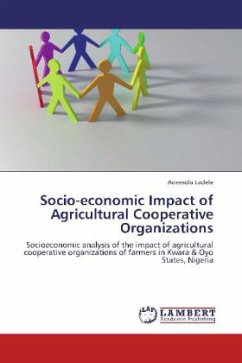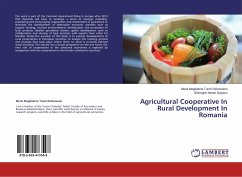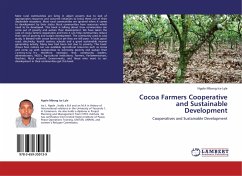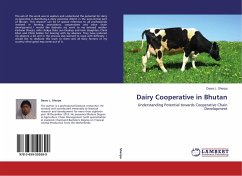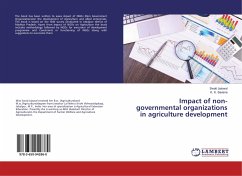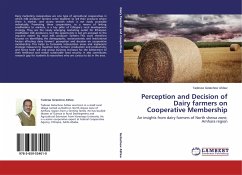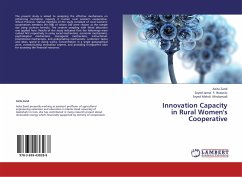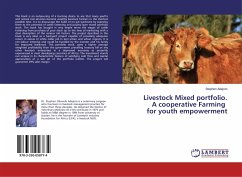Agricultural cooperatives are seen as a veritable tool for improving farm production and rural better livelihood. Cooperative studies in Nigeria, like many other developing nations have concentrated on economic variables despite the belief globally that the social aspects of cooperation are equally important. This book presents an empirical study that investigated the capability of the farmers co-operative societies in transforming the rural economy through improved livelihood. This can be realistic if members well being is better than non-members . The study has shown that co-operators and non-co-operators were not different in many of their personal characteristics; the co-operators were however better in the economic status, adoption level, family health status, social-economic status and social participation. The study then established that participation in farmers co-operatives contributes to some dimensions of members socio-economic well-being. If active participation is encouraged and co-operatives become more broad-based in activities, it could indeed be a virile tool in transforming the rural economy.
Bitte wählen Sie Ihr Anliegen aus.
Rechnungen
Retourenschein anfordern
Bestellstatus
Storno

